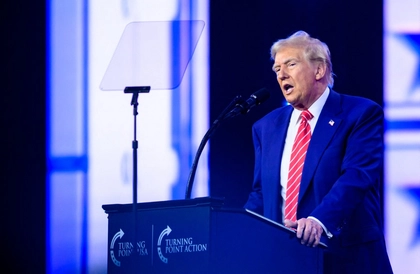Skipping the World Economic Forum, world leaders and executives will instead flock to DC for Donald Trump’s presidential inauguration. US tech giants will host satellite events, while foreign dignitaries curate rooms of decision-makers at the Willard and Waldorf Astoria.
As leaders look to curry favor with the incoming Trump administration, however, it is important for US officials to recognize the longstanding supporters of Washington, versus fair-weather friends who emerge just as it seems the political tailwinds turn.
JOIN US ON TELEGRAM
Follow our coverage of the war on the @Kyivpost_official.
Despite differences in rhetoric, there are structural consistencies in US foreign policy regardless of the political hue of the administration, such as the trend of “friendshoring” and moving manufacturing bases to allied countries, and growing hawkishness toward the axis of China, Russia, and Iran.
Key countries, in particular North Macedonia, have emerged as strong US allies, even doubling down on their commitment to American values as Trump assumes office. Officials should take a harder look at how these allies’ defense manufacturing capabilities fit into the White House’s strategic interests to ensure greater deterrence against adversaries and even offer an upside for US investors as their economies grow.
Why North Macedonia?
At the crossroads of Europe, Asia, and the Middle East, Southeast Europe is strategically important. The region is a transit route for oil and gas pipelines connecting Europe with energy suppliers in the Middle East and Russia. China has made Southeast Europe a priority of its Belt and Road initiative, investing billions of dollars into infrastructure across Balkan countries.

Decriminalizing Pornography Degrades ‘Moral Values’ – Ukraine’s Police Chief
Out of all the countries in Southeast Europe, North Macedonia has taken in the least amount of investment from China, behind longstanding NATO members such as Greece, even when comparing the differences in their respective economies. Greece has received between $1 billion and $2 billion of Chinese investment for critical infrastructure – most notably the Chinese firm COSCO Shipping that acquired a majority stake in the Piraeus Port Authority — while North Macedonia took in only $130 million almost a decade before joining NATO.
Despite only joining NATO in 2020, North Macedonia has outshone some of the largest European players in its commitments to the alliance.
According to CIA estimates, North Macedonia significantly increased its defense budget to 2.2% of its GDP to meet the NATO requested commitment standard last year. That was ahead of the 2.1% of both France and Germany, the two largest of the EU’s economies.
Italy meanwhile only contributed 1.5%, and every other NATO country in Southeast Europe — Montenegro, Albania, Croatia, and Slovenia — still lag behind North Macedonia’s commitment. Statistics from the World Population Review turn up the same conclusions towards Skopje’s growing investments into defense production.
A Combat-Ready Military
Far from just a financial commitment, however, North Macedonia’s military capabilities are practical and sought after across different conflict zones. They have proven their expertise and interoperability with the US military in numerous joint operation missions in Iraq and Afghanistan.
In November 2023, North Macedonia announced that it had trained Ukrainian soldiers in its army facilities, and would continue to do so for the duration of Russia’s invasion. By contrast, NATO member Greece offered to train Ukrainian F-16 pilots, but not on its own soil, while Slovenia sent its training instructors to sites in Germany.
Croatia, also a NATO member, initially considered opening its military bases for the training of Ukrainian ground forces, but this move was blocked by Zoran Milanović President of Croatia – a stance that was reiterated as recently as last October, in a break from NATO’s official mission.
Many world leaders will attend President Trump’s inauguration. But not all governments have proven themselves as effective strategic partners, let alone upheld their commitments to counter influence from China and Russia. When meeting with foreign leaders, Trump officials should take a page from the President-Elect’s handbook and ask a crucial question: What have you done for America lately?
North Macedonia has shown it can punch above its weight, in terms of defense spending, and actionable steps that strengthen US-led coalitions. It’s time to double down on what is working.
The views expressed in this opinion article are the author’s and not necessarily those of Kyiv Post.
You can also highlight the text and press Ctrl + Enter











